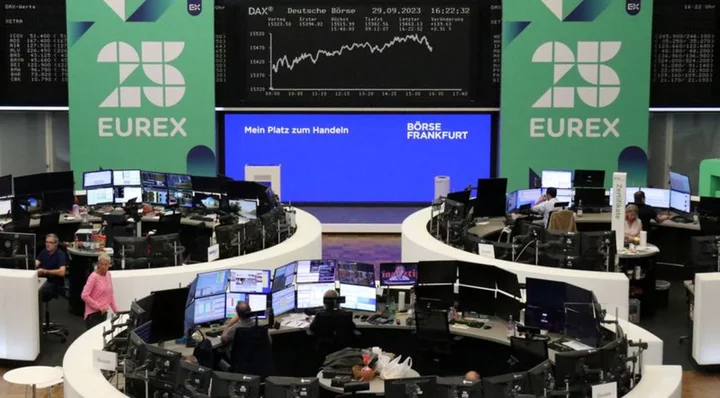Some of Europe's biggest banks are setting aside more cash to absorb potential losses on loans, as rising interest rates increase pressure on borrowers.
UK-based Barclays reserved £896 million ($1.2 billion) in the first half of this year to cover possible defaults by borrowers, more than double the amount in the same period last year, it said Thursday.
So far, there are "limited signs of stress" across the bank's loan portfolios, Anna Cross, group finance director at Barclays, told reporters.
Loan loss provisions at Deutsche Bank jumped 72% to €401 million ($446 million) in the second quarter, Germany's biggest lender said Wednesday.
The bank also struck a cautious note on full-year loan losses in its earnings announcement, citing "an uncertain macro-economic environment."
Spain's Santander also said Wednesday that it had increased its loan loss provisions by 21% in the first half of the year compared with the first half of 2022.
Consumer price inflation in Europe, while falling, remains high, weighing on households' finances. Meanwhile, interest rate hikes by the European Central Bank and the Bank of England are hampering economic activity, with the 20 countries that use the euro already in a recession.
Jonas Goltermann, deputy chief markets economist at Capital Economics, told CNN that he was most worried about the potential for losses on bank loans to the commercial real estate sector.
"[The sector] is really struggling to refinance its loans at higher rates, and that's leading to large writedowns for property investors, which will probably hit their lenders too eventually," he said.
Goltermann said losses on consumer loans and mortgages were less of a concern.
"With labor markets still in good shape, losses on those types of loans are probably a bit less worrying right now," he said.
The European Central Bank hiked its main interest rate by a quarter of a percentage point Thursday, taking the benchmark rate in the euro area to 3.75%, the highest since October 2000.
"The near-term economic outlook for the euro area has deteriorated, owing largely to weaker domestic demand," the bank's President Christine Lagarde told reporters. "High inflation and tighter financing conditions are dampening spending."
In the United Kingdom, the Bank of England took borrowing costs to 5% in June, the highest level since April 2008.
That has driven up the cost of mortgages: The average rate on a two-year fixed-rate mortgage in the UK stood at 6.83% Thursday, according to data from product comparison website Moneyfacts, up from 3.94% a year ago.
More than 2 million UK mortgage holders paying a fixed interest rate are facing an increase of hundreds of pounds in monthly repayments when they are forced to refinance this year and next.
— Hanna Ziady contributed reporting.









